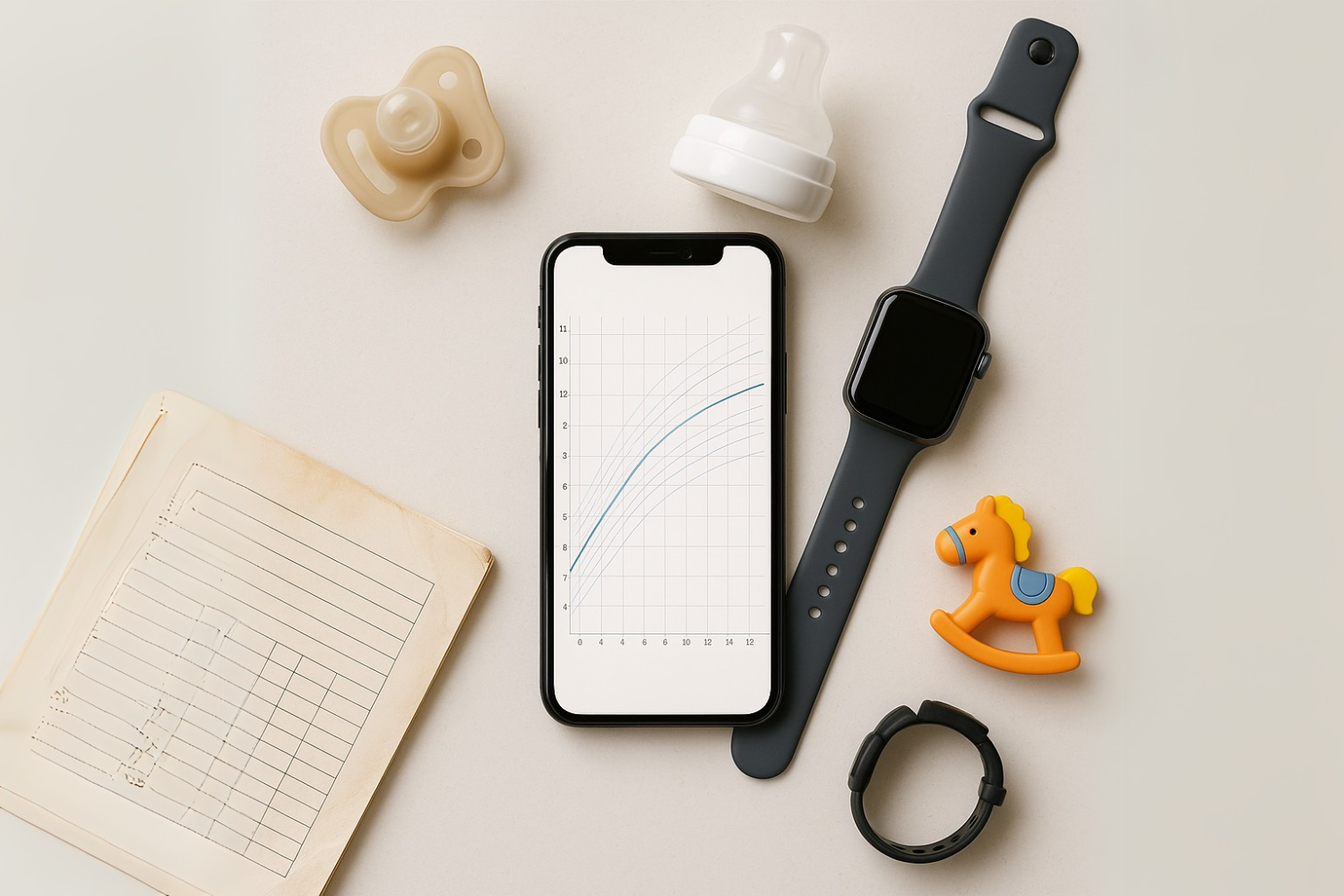Why Are We Still Using Paper Charts for Our Kids’ Growth in 2025?
Would you manage your savings in a handwritten notebook? Then stop using one for your child’s health. Digital records give you clarity, access, and peace of mind.
By Renan Correa • 3 min read
Last week I watched a doctor open my son’s health paper booklet. Inside was a half-empty weight chart with a few scattered dots. The doctor looked puzzled, flipped through pages trying to find old notes written by others. Then, added a new dot. That was it.
No alerts, no analysis, no context.
In a world where we track steps, sleep cycles, and heart rate on our phones in real time, that felt like traveling back in time.
The Problem with Paper-Based Records
There was a time when families visited the same doctor for years, and physicians had fewer patients to manage. A handwritten booklet worked fine. It stayed with the family, and the doctor knew the child’s history by heart.
But the world changed. Families move, doctors rotate, and clinics are overloaded. The simplicity of the old system no longer meets the complexity of modern life.
- Some doctors report properly, some don’t.
- If one information is wrong, it stays there forever.
- If the booklet is lost or forgotten, the history is gone.
- And when you actually need the data: good luck flipping through handwritten notes.
This outdated system makes it harder to spot trends, delays important conversations, and leaves too much room for error.
Smarter Digital Records for Modern Families
Digital health records are portable, structured, and secure. Whether you're at home, traveling, or visiting a new pediatrician, your child’s health history is just a tap away.
It’s more than convenience, it’s smarter healthcare. Digital records help parents and physicians spot trends, share information effortlessly, and make faster, better-informed decisions.
Health Data Shouldn’t be Held Hostage
Most healthcare providers already store records digitally, but locked away inside their own systems. This gives institutions control over information that should belong to families.
When data stays trapped in a provider's database, families lose autonomy. Switching doctors becomes harder. Accessing your own records requires forms, delays, or in some cases, isn’t possible at all.
From Locked Systems to Empowered Parents
At Ezm5, we believe health data should follow the child, and not be stuck in someone else’s system. By putting the data in the hands of parents, Ezm5 restores ownership, transparency, and control.
Parents can easily share records with caregivers or doctors they trust, and seek second opinions without obstacles. And since the data is structured, they can even request powerful Artificial Intelligence models to analyze it, detect trends, and uncover meaningful insights.
This isn't the future, it’s reality.
Try It Now
We just launched a new digital feature where you can input your child’s weight, see it instantly plotted on a chart with the WHO reference curves, and get an instant AI-generated insight about the data.
Try it now (no sign up required): https://ezm5.com/weight-for-age/
Stop relying on paper to track what matters most. Experience a digital, structured, and private version of your child’s health booklet, accessible at any moment, searchable, and smart.
- digital health
- child growth
- health records
- smart parenting
- AI for health

